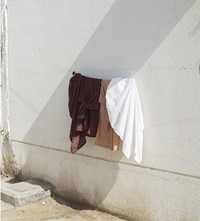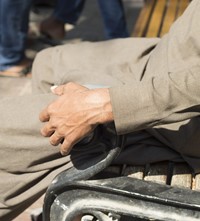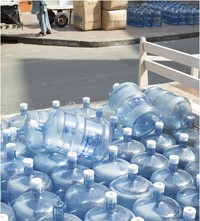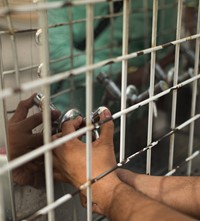Ben Soedira’s series Foreign Sands hones in on the streets of Dubai, a city that the photographer has a complex relationship with
Born on the outskirts of Dubai to an Indonesian-Dutch father and English mother, photographer Ben Soedira always wondered about his relationship to the city. He describes it as suffering from “urban amnesia” with entire neighbourhoods frequently turned over to skyscrapers, hotels, and malls. Even the ground itself is uncertain, as “a lot of the sand they use in Dubai isn’t from Dubai or the Gulf region, a lot is imported from China and Germany and apparently Lancaster as well. The city is completely made up of foreign elements.” Yet, when in 2013 he moved to the UK, his self-identity and sense of belonging was thrown into focus. In his latest series Foreign Sands, Soedira asks how is it that he’s come to see this restless city as home?
“Over time I realised what’s home for me is small things in the everyday,” Soedira says. “It’d be easy for me to photograph the Burj al Arab for example, but there are smaller things that I associate with home.” These are things that only become apparent once you realise their absence; it might be a tray of karak tea and the call of the muezzin in the morning, the daily water delivery, the shape of a brick or simply a pile of sand. It could be the almost imperceptible sense of heat radiating from the flat walls or the ever-present dust painting the sky a hazy grey. Soedira’s rootlessness in reflected in his wistful, meandering images that drift through the backstreets like fleeting memories of youth.
In the neighbourhood of Deira the photographer captured a group of Pakistani Kushti wrestlers, who cultivate a sense of community with their informal, but well-attended weekly wrestling matches. “There wasn’t a specific time when it was set – we knew it was on Friday at sunset, so I pitched up there around that time. I was expecting 15 people at most, but there were 40, perhaps 50 people. It’s a really strong community. Photographing and talking to them was interesting, they say it’s given them a sense of home as well.”
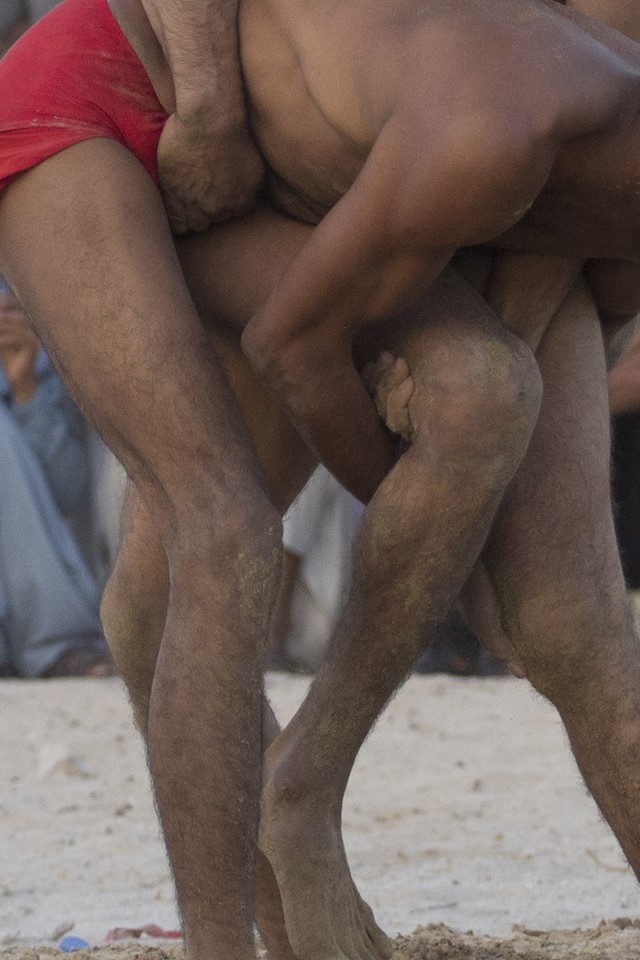
Soedira also sees these wrestlers as metaphorically embodying the underlying social tension in the city. As the men grapple and the sand is churned under their feet, Soedira can’t help but think of the near-constant construction and demolition that affects these migrants’ communities hardest. Other hints to their precarious status come in photographs of vendors offering international SIM cards and lampposts plastered with segregated rental listings. For Soedira, “it’s impossible for you not to talk about a place like this without the bigger issue, which is workers’ rights and human rights and the ethics of the place”. These details “dig quite deeply”, he says.
Taken as a whole, these images express the inner turmoil that Soedira feels when talking of his distant home. Despite being born in Dubai, he can only return on a tourist visa, and when as non-citizens his parents retire they will be forced to leave the country. These worries are shared by many: in Dubai, nine in ten people are migrants, with little-to-zero chance of gaining citizenship. For the past five years Soedira has lived in Glasgow, yet he finds himself hesitant to call the Scottish city home. “Once I’m settled I know I’ll start calling Glasgow home, which is fine, but it’ll distance me from what I consider to be home right now, which is Dubai. I have this idea that I need to constantly move around so that I don’t become too settled.”
Foreign Sands by Ben Soedira is on show as part of the travelling exhibition The Place I Call Home.
